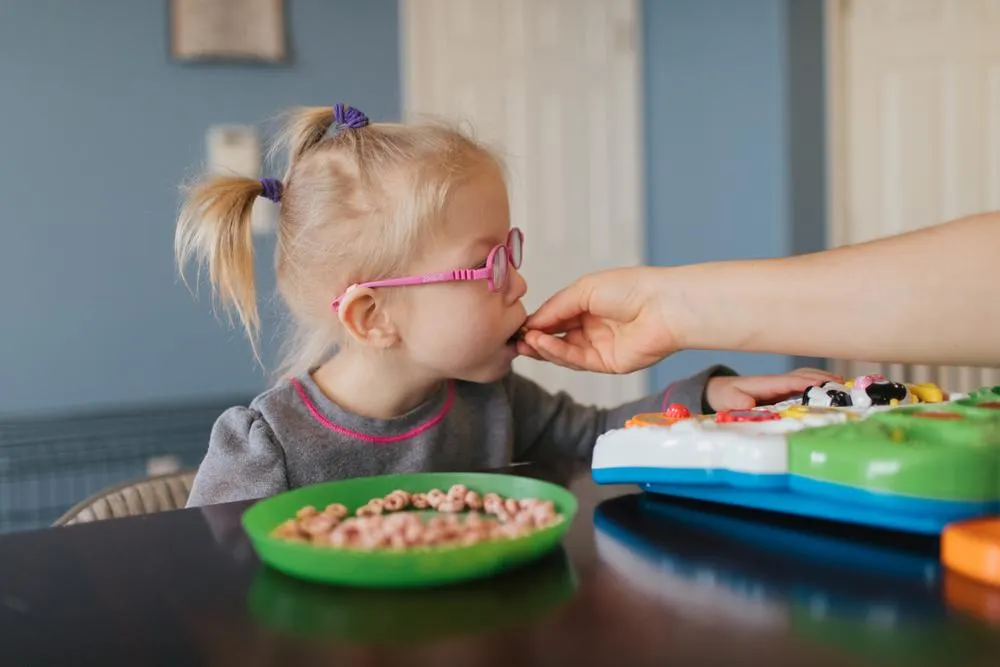Harmony in
Neurodiversity
THE BLOG
Welcome to Harmony in Neurodiversity, a blog dedicated to exploring the profound impact of music and positive parenting strategies on the lives of neurodivergent individuals. Join Samantha, a board-certified Neurologic Music Therapy fellow and a passionate Positive Discipline Parent Educator, as she shares her expertise in leveraging the power of music and effective parenting approaches to support and empower neurodiverse communities.
In her blog posts, Samantha delves into the intricate connections between music and the brain. She explores how specific musical elements and interventions can enhance cognitive functions, regulate emotions, improve communication, and promote social interaction among neurodivergent individuals. Through insightful articles and case studies, she demonstrates how rhythm, melody, and lyrics can serve as powerful tools for therapeutic interventions, fostering growth and self-expression.
Positive Discipline Parenting Strategies:
Drawing from her expertise as a Positive Discipline Parent Educator, Samantha sheds light on nurturing positive relationships between parents and neurodivergent children. Her blog offers practical advice, evidence-based strategies, and real-life anecdotes that empower parents and caregivers to cultivate respectful, encouraging, and effective parenting techniques. From setting clear boundaries to fostering a supportive environment, Samantha guides readers in navigating the challenges and joys of parenting neurodiverse children.
Exploring Intersectionality:
Samantha doesn't limit her discussions to singular approaches. Instead, she delves into the intersectionality of Neurologic Music Therapy and Positive Discipline Parenting, illustrating how these methodologies complement each other. Through her insightful content, she showcases how the harmonious integration of music-based interventions and positive parenting strategies can create holistic support systems for neurodivergent individuals, promoting their well-being and personal growth.
Community Engagement and Resources:
Additionally, Samantha fosters a vibrant online community where readers can engage, share experiences, and seek advice. She curates a wealth of resources, including recommended readings, workshops, and practical tools, empowering her audience to implement valuable insights into their lives effectively.

Feeding Challenges in Autistic and ADHD Kids: Strategies That Work
If you’re raising a child with autism or ADHD, chances are you’ve faced the battle of limited diets and food refusals. Maybe your child will only eat a handful of “safe foods.” Maybe they’d rather go hungry than try something new. You’re not imagining it; feeding challenges are real, and kids absolutely can starve themselves when the anxiety around food is high.
I know this because I’ve lived it.
Why Kids Refuse Food
For many neurodivergent children, food isn’t just about taste. It’s about sensory experiences, which include smell, texture, sight, and even the context of eating. Some kids will flat-out refuse a meal not because they’re “picky,” but because the smell is too strong, the texture feels wrong, or the food is unfamiliar.
In my home, one of my kids once went nearly 24 hours without eating because nothing available felt safe to him. He insisted he would “rather die than eat” what was offered. That’s how powerful food anxiety can be.
The Role of Feeding Therapy
If food struggles are interfering with your child’s health or family life, a feeding therapist can help. Feeding therapy is often provided by occupational therapists or speech therapists. The process is slow, but it works:
Start with a food your child likes and a food they avoid.
Allow them to explore the “unsafe” food without pressure. Touch it, smell it, or simply let it sit nearby.
Gradually bring the food closer, for example, on the table, next to their plate, and eventually on their plate.
Encourage playful interaction. Let them stack, squish, or even build “food mountains.”
When they’re ready, ask them to lick or take a nibble.
This slow exposure builds tolerance without forcing the issue.
Assent-Based Feeding Approaches
A key part of success is assent-based therapy, which is respecting your child’s boundaries and moving forward only when they’re ready. If your child refuses to touch or taste, back up a step. The goal isn’t compliance; it’s trust and gradual progress.
This process can take months, and it requires patience. It works better than battles at the dinner table, which only increase stress for everyone.
What to Avoid
Forcing food. It only deepens anxiety.
Expecting progress when your child is overstimulated. New foods should be introduced in calm, low-pressure moments, not after a long day or in front of judgmental relatives.
Comparisons. Every child is different. What works for one may not work for another.
Practical Tips Parents Can Try at Home
Let your child help prepare meals, including choosing foods, cooking, or even just stirring, can give them a sense of control.
Offer small exposures regularly, but keep expectations realistic.
Remember that familiar “safe foods” (yes, even chicken nuggets) serve an important role in regulation and comfort.
Final Encouragement
Feeding challenges can feel isolating, but you’re not alone. Your child isn’t refusing food to make life harder. They’re navigating real sensory and anxiety barriers. With patience, exposure therapy, and assent-based strategies, progress is possible, even if it’s slow.
Parent the child you have, not the one others expect you to have.
Remember: small steps count as big wins in the world of feeding therapy.
If mealtimes feel like battles and you’re exhausted from worrying whether your child is eating enough, you’re not alone. Feeding struggles are one of the hardest parts of raising a neurodivergent child, and they can leave parents feeling frustrated, judged, and unsure of what to do next.
Inside the Neurodivergent Parenting Community, you’ll find parents who understand what you’re going through. Together, we share real strategies for picky eating, food aversions, and feeding therapy. You’ll get guidance you can trust, encouragement when progress feels slow, and the reminder that small steps truly are big wins.
You don’t have to figure this out on your own. Join us today and find support for the struggles that happen around the table and beyond.


